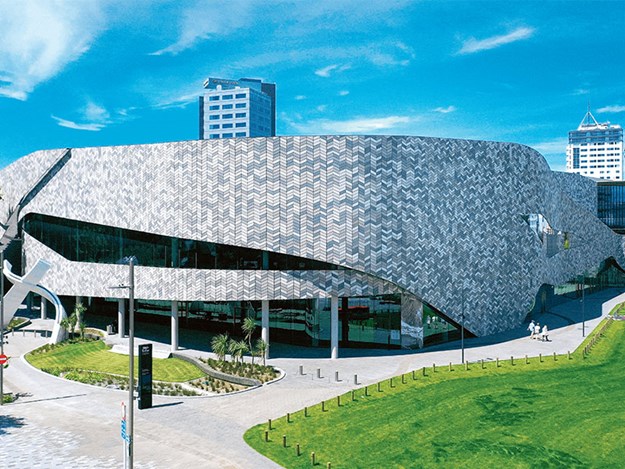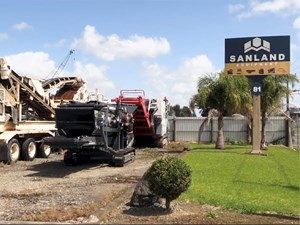Comment: Trucking Summit in July
The Trucking Summit in July is being held at the new Christchurch Te Pae Convention Centre
The Trucking Industry Summit is not an old-fashioned conference. It is short, sharp, and well organised. Conferences in the past have been drawn-out events with long sessions from speakers who want to tell the audience about themselves, rather than addressing the key industry issues.

New Zealand Trucking Association and National Road Carriers together represent the majority of the supply chain. The Trucking Industry Summit enables the industry to unite to create discussions and offer solutions.
The Summit will be in Christchurch on Saturday 30 July at the new Christchurch Te Pae Convention Centre and will be an event not to miss. Bookings are open. The presenters and full program will be announced soon.
For those delegates that are in Christchurch the night before you are invited to attend a networking evening. This will be a fantastic opportunity for friends and colleagues to connect again. After the Summit there will be time to reflect and continue discussions and enjoy refreshments.
The team are preparing a discussion document that will tackle industry issues that need discussion. The hard questions will be put to the presenters and followed up on after the event. It has been decided to focus on five key areas. Here is a sneak preview of our five key issues.
Workforce Strategy - Every aspect of the transport supply chain is under pressure to find skilled workers locally. New Zealand will need thousands of extra truck drivers by 2025, but we are already short of drivers and other logistics workers.
Trucking operators compete with every other industry and overseas recruiters for the same people. The discussion document calls for better government funding for training initiatives.
A streamlined driver licencing system, Competency based training and licencing including driver to driver mentoring. Greater industry diversity, including women, Maori, Pasifika, and migrants. Truck Drivers occupation to be reinstated on the immigration skills shortage list.
Immigration levels adjusted to assist visas. More flexibility for visas based on experience
Safe Roads - The road is the workplace of the supply chain. We have a deficit of new roading infrastructure that needs to catch up with demand.
Poor road surfaces and a lack of maintenance has seen a deterioration of the roading network, and in some cases the road surface is a major safety issue. We have a fragile State Highway connection system, which is affected by weather and natural disasters.
With very few alternate routes available in some areas, communities can be cut off from delivery of essential items. We would like to see accelerated infrastructure investment on key metro, regional and national freight routes, including fixing the connecting access gaps in the network; control and budget for key freight routes to come under Waka Kotahi; a freight infrastructure champion attached to Waka Kotahi; a national map of freight infrastructure gaps; good, safe road design, better quality road surfaces that can withstand weather events; more active repairs as potholes open, guaranteed safe arterial access to key ports and freight hubs.
Decarbonisation - New Zealand has set a target to reach net zero by 2050. The carbon footprint of transport is to reduce by up to 90% of 2015 levels by 2050. This would mean a 17% reduction in total gross greenhouse gas emissions.
The challenge for transport operators is the New Zealand truck fleet is old by international standards with an average age of 17.5 years. Older trucks have the highest crash frequencies and lack improved safety technology.
Older trucks produce higher emissions. More than 20 per cent of heavy vehicles are pre-1996 trucks with poor emission standards. Less than half of the New Zealand truck fleet meets the latest emission standards.
Older trucks have poor community impacts, including noise. Older trucks perform poorly and have a greater toll on drivers. Trucks that meet the Euro 6 standard produce 95% less emissions than Euro 3 trucks.
Early alternative technology trucks are expensive and early adopters risk stranded assets if they choose the wrong technology. We need a viable interim alternative that encourages the uptake of safer more environmentally friendly Euro 6 trucks as an interim solution.
Road to Zero - New Zealand’s road safety strategy for 2020–2030. Road to Zero adopts a vision of a New Zealand where no one is killed or seriously injured in road crashes, and a target for reducing annual deaths and serious injuries by 40 percent by 2030.
We would like to see incentives for trucking operators to update their fleet to safer more environmentally friendly Euro 6 trucks; management of fatigue as a risk with proven fatigue management systems; financial support for an industry-lead road user awareness programme; support for industry-lead programmes that promote the health and wellbeing of the workforce; tightening of the Chain of Responsibility legislation to hold contributing parties to account; availability of better-quality data for fatalities and serious injury to enable more targeted interventions.
Productivity - New Zealand is predominantly an export lead economy and our productivity is falling, especially against our trading competitors. Some of our major export markets are 14,000km away. Any unnecessary cost reduces our exporters competitiveness and increases costs to NZ consumers.
The cost of running a typical 50,000kg, 23-metre long HPMV in NZ is on average 25% higher than our neighbours in Australia running a 65,000kg, 26-metre-long B Double, a productivity loss of 15,000kg payload per trip.
We would like to see 65,000kg, 26-metre-long B Doubles as a default industry HPMV standard, giving an immediate productivity gain, meaning fewer trips, less congestion, reduced costs, reduced labour, reduced emissions, and fuel use.
Road access should be as of right for HPMV based on vehicle type rather than individual vehicles being permitted. If you are part of the supply chain do not miss this opportunity to hear from government, stakeholders, and industry.
This is an interactive event, where you will get plenty of time to ask questions. Tickets can be purchased at NTA 0800 338 338, email pam.stark@trucking.nz or NRC 0800 686 777email enquiries@natroad.co.nz
Find new and used heavy machinery for sale in NZ
Keep up to date in the industry by signing up to Deals on Wheels' free newsletter or liking us on Facebook.





.jpg)


.jpg)


.jpg)
.jpg)
.jpg)
.jpg)


